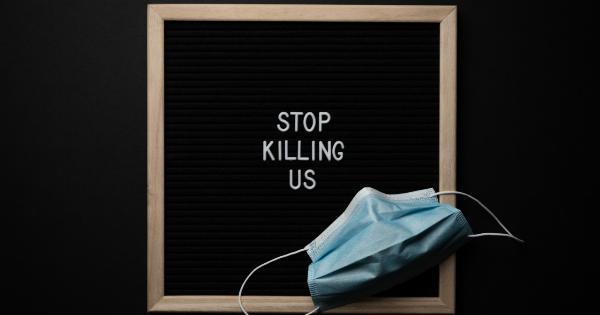Therapy is a delicate relationship, built on trust and vulnerability. It is a professional bond intended to help individuals navigate through their emotional struggles.
However, in some instances, this dynamic can become blurred, resulting in a tragic mistake known as the therapist-patient romance. This controversial and ethically problematic situation has profound consequences for both the therapist and the patient involved.
The Boundaries of Therapy
Therapists are bound by a strict code of ethics, which includes maintaining professional boundaries.
These boundaries are put in place to protect the well-being of the patient and to ensure the therapeutic relationship remains focused on the patient’s needs. Engaging in a romantic or sexual relationship with a patient is a clear violation of these boundaries, as it compromises the integrity of the therapy process.
The Power Imbalance
One of the main reasons why therapist-patient romances are considered harmful is the inherent power imbalance in the relationship.
Therapists hold a position of authority and trust, and patients often rely on them for guidance during their most vulnerable moments. This power dynamic can create an environment where patients may feel coerced or manipulated into engaging in romantic or sexual relationships with their therapists.
The Legal and Ethical Implications
Engaging in a romantic or sexual relationship with a patient is not only ethically problematic but can also have legal consequences for the therapist.
Many professional organizations, such as the American Psychological Association (APA) and the American Counseling Association (ACA), have strict guidelines in place that explicitly prohibit therapist-patient relationships. Violation of these guidelines can lead to professional sanctions, license revocation, and even legal action.
The Impact on the Patient
For the patient involved in a therapist-patient romance, the consequences can be deeply damaging. The therapeutic relationship is based on trust, and when that trust is shattered, it can have long-lasting effects on the patient’s mental health.
They may experience feelings of betrayal, confusion, and a loss of faith in the therapeutic process. In some cases, it may also exacerbate existing mental health issues or lead to new ones.
The Impact on the Therapist
While the focus is often on the patient in these situations, it is important to acknowledge the impact on the therapist as well. Engaging in a therapist-patient romance can have severe professional, emotional, and personal consequences.
Their reputation may be irreparably damaged, and their career may come to an abrupt end. They may also experience guilt, shame, and a loss of professional identity.
The Ethical Dilemma
The therapist-patient romance presents a significant ethical dilemma. On one hand, therapists are human beings capable of forming emotional connections. However, these personal desires must be put aside to prioritize the well-being of the patient.
The ethical dilemma lies in the balance between acknowledging the therapist’s humanity and upholding the professional responsibilities they have committed to as mental health practitioners.
Preventing Therapist-Patient Romances
Professional organizations and regulatory agencies have a crucial role to play in preventing therapist-patient romances.
They must continue to enforce strict guidelines, educate therapists about the boundaries of the therapeutic relationship, and establish consequences for those who breach these boundaries. Additionally, ongoing training and supervision for therapists can help them navigate the complexities of their professional role while maintaining appropriate boundaries.
Support and Recovery for Patients
For patients who have experienced a therapist-patient romance, support and recovery are vital.
Mental health professionals not involved in the breach of boundaries can play a crucial role in helping patients process their emotions, rebuild trust in therapy, and develop healthier coping mechanisms. Support groups and therapeutic communities can also be valuable resources for those navigating this challenging experience.
Moving Forward: Lessons Learned
Despite the tragic consequences of therapist-patient romances, there are valuable lessons to be learned from these incidents. The mental health community must continue to prioritize the establishment and enforcement of ethical guidelines.
Greater public awareness about the dangers of these romances can also help protect vulnerable individuals seeking therapy.
Conclusion
The therapist-patient romance is a tragic mistake that can have devastating consequences for both the therapist and the patient involved.
It undermines the integrity of the therapeutic relationship, exacerbates power imbalances, and violates professional ethics. By educating therapists, enforcing strict guidelines, and supporting patients, it is possible to prevent and navigate the aftermath of therapist-patient romances, ultimately strengthening the mental health community as a whole.


























